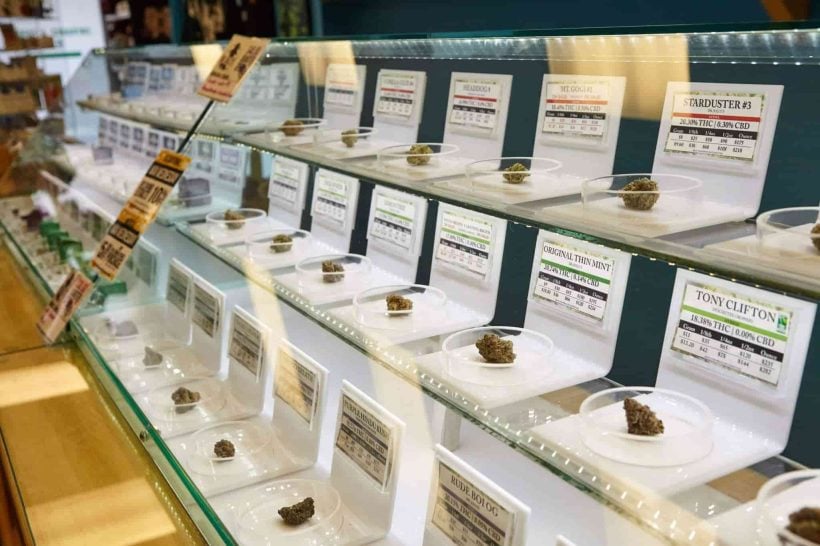The Duty of Clinical Marijuana Dispensaries in Supporting Health and Wellness
The appearance of medical marijuana dispensaries notes a considerable change in how patients gain access to healing options customized to their specific wellness needs. What might these modifications mean for standard clinical practices?
Comprehending Medical Marijuana
Clinical cannabis refers to using cannabis and its components for healing purposes. It includes different kinds of the plant, including dried out blossoms, oils, casts, and edibles, which contain active substances referred to as cannabinoids. The main cannabinoids of passion are tetrahydrocannabinol (THC) and cannabidiol (CBD), each exhibiting unique medicinal homes.
The healing application of marijuana is rooted in its communication with the human endocannabinoid system, which plays an essential function in managing numerous physiological processes, including pain, mood, and hunger. Clinical marijuana is often prescribed for conditions such as chronic pain, nausea or vomiting linked with radiation treatment, and neurological problems. Nonetheless, it is essential to identify that the efficacy and safety of clinical marijuana can differ based upon individual patient features and certain item formulas.
The legal status of medical marijuana differs substantially across territories, influencing access and regulation. In several areas, clients must obtain a referral from a qualified doctor to access marijuana products from licensed dispensaries. As study continues to evolve, recognizing the complexities of medical cannabis is vital for health care experts and patients alike, making certain informed decision-making in therapeutic contexts.
Advantages of Medical Marijuana

Additionally, medical cannabis has actually shown guarantee in alleviating the signs of anxiousness and anxiety. Cannabinoids, especially cannabidiol (CBD), have been found to put in anxiolytic effects, advertising leisure and minimizing anxiety degrees. This can be especially valuable for people taking care of mental wellness problems.
In addition, marijuana has been utilized to take care of nausea or vomiting and vomiting, specifically in patients undergoing chemotherapy for cancer cells treatment. The antiemetic buildings of THC can dramatically enhance the high quality of life for these patients.
Last but not least, preliminary study suggests that cannabis might have neuroprotective buildings, using potential benefits for neurodegenerative conditions such as Alzheimer's and Parkinson's. dispensary. As clinical understanding remains to advance, the restorative applications of clinical cannabis are most likely to broaden, highlighting its possible function in improving patient care and overall wellness
Role of Dispensaries
As the need for clinical cannabis proceeds to climb, dispensaries play a crucial function in making certain individuals internet have access to risk-free and efficient therapies. These establishments act as the primary factor of access for clients looking for cannabinoid treatments, offering a controlled atmosphere where products stick to strict high quality requirements. Dispensaries are in charge of sourcing a range of cannabis strains and solutions, permitting people to pick choices that finest match their private health needs.

Individual Education And Learning and Assistance
Education and assistance are important parts of the client experience in clinical cannabis dispensaries. Dispensaries function as critical resources for clients looking for to understand the restorative potential of cannabis. Experienced staff can lead patients with the numerous strains, distribution methods, and dosages, making certain that they make informed options customized to their clinical demands.
Furthermore, dispensaries usually offer academic products that discuss the endocannabinoid system, how cannabis engages with it, and the possible advantages and negative effects of medical marijuana. This information equips individuals to get involved proactively in their therapy strategies.
Assistance additionally expands to individualized examinations, where people can discuss their certain health and wellness conditions and concerns. These interactions cultivate a relying on relationship in between patients and dispensary team, boosting the total restorative experience.
In addition, several dispensaries provide workshops and neighborhood events made to enlighten individuals about liable usage, legal considerations, and the current research study in clinical marijuana. By prioritizing patient education and learning and assistance, medical marijuana dispensaries not only improve the efficiency of therapies however also promote a holistic strategy to health and wellness and wellness, inevitably enhancing client results.
Future of Clinical Marijuana
Envisioning the future of clinical marijuana exposes a landscape marked by innovation, boosted acceptance, and advancing guidelines. As study remains to validate the healing benefits of marijuana, we can anticipate a rise in evidence-based click over here now guidelines that will certainly notify patient treatment and therapy procedures. This change will likely enhance the integrity of medical cannabis within the more comprehensive healthcare system, cultivating cooperation in between dispensaries and clinical professionals.
Moreover, innovations in cultivation strategies and product advancement will certainly result in a much more varied array of cannabis-based therapies. Tailored formulas targeting particular disorders might emerge, enabling for customized medicine techniques that make best use of efficacy while lessening negative results.
Governing frameworks are expected to advance in tandem with public viewpoint, as even more jurisdictions identify the possibility of medical cannabis to ease suffering. This might result in more structured access for patients, decreasing governmental obstacles frequently came across today.

As acceptance expands, instructional campaigns will certainly play an important role in educating both individuals and doctor concerning the benefits and dangers related to clinical cannabis. Ultimately, the future of clinical marijuana holds assurance for boosted individual outcomes, enhanced lifestyle, and a much more integrated approach within the health care landscape.
Conclusion
Finally, medical cannabis dispensaries significantly add to health and wellness and health by offering access to tailored cannabinoid therapies and ensuring product safety and security. Their function expands beyond distribution, incorporating education and customized consultations that equip patients to make enlightened health and wellness choices. dispensary torrance. As the landscape of medical marijuana remains to develop, dispensaries will stay crucial in promoting public trust and progressing understanding of therapeutic capacities, inevitably enhancing person outcomes and promoting accountable usage within the area